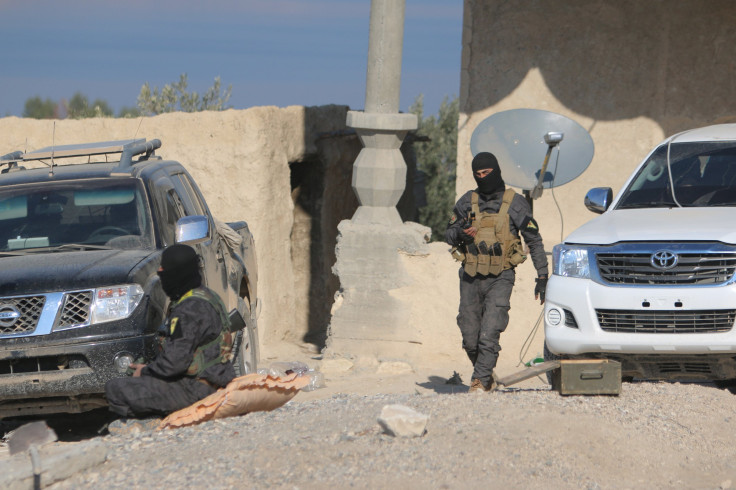In Syria, Kurdish Autonomy Could Complicate Allegiances On The Ground

BEIRUT — Three Kurdish delegations in northern Syria united Friday to announce their areas would become an autonomous state within Syria that would soon have its own federal system of governance.
The U.S. and other world powers worried this announcement could negatively affect the peace talks currently being brokered by the United Nations that are aimed at bringing warring factions to a political solution of the Syrian Civil War. On the ground, though, the move is likely to be met with more than worry, namely, additional fighting that could force a change of allegiance among other Syrian opposition groups.
Kurdish militias collectively have been a key piece of the American strategy to combat the Islamic State group, aka either ISIL or ISIS. However, Turkey, another U.S. ally in the war on ISIS and a NATO member, has vowed to crush any attempt to create a Kurdish state along its border and has even threatened to directly intervene in the Syrian conflict to prevent this from happening.
Turkey also has prevented Kurdish factions from participating in the U.N.-brokered negotiations seeking a political solution in Syria. If the Kurds act on their declaration to establish their own government within the country, their exclusion from the peace talks will only complicate any agreement about Syria’s political future.
Speaker of Kurdistan Region Parliament congratulates #Rojava on establishment of Federal entity #twitterkurds pic.twitter.com/czY1KmsWe6
— گۆڕان Gorran (@Gorran_Change) March 18, 2016
Although the Kurds are major players within the Syrian Democratic Forces (SDF), the U.S.-backed Kurdish-Arab coalition fighting ISIS, their allegiances have been fickle throughout the war. Their declaration of an autonomous region inside Syria could undermine the Syrian opposition’s goal of a transitional government that would follow the removal of President Bashar Assad.
Even before the recent announcement, many opposition forces already believed the Kurdish fighters, and by association the SDF, were capitalizing on the Assad regime’s gains and fighting against the rebel groups.
“Of course the Kurdish Army is fighting with Assad’s army,” Omar Khatab, an Aleppo-based fighter with Ahrar al-Sham, told International Business Times.
While the Kurds have been active during the Syrian war, they have largely been fighting for territory, which would enable them to eventually declare their own state. Kurdish groups control roughly 250 miles of territory along the Syrian-Turkish border, which extends to a Syrian crossing with Iraq under Iraqi Kurdish control.
Rojava and Northern Syria United Democratic System document accepted. #TwitterKurds https://t.co/yUMUD7QAit pic.twitter.com/mBlcWSbkGL
— JOIN US! (@Hevallo) March 17, 2016
But the Kurds’ plan for a federal government should not be confined to the territory currently under their control, Salih Muslim Mohammed, the co-leader of the Syrian Kurdish Democratic Union Party told Middle East Eye, an online news outlet based in the U.K.
“There is no autonomous Kurdish region, so there is no question of recognizing it or not,” Mohammed said. “It is part of a democratic Syria, and it might expand all over Syria. We want to decentralize Syria, in which everyone has their rights. The federalism we talk about is not a geographical line.”
The self-declared autonomous state Rojava, a Kurdish word that refers to three Kurdish-controlled areas in northern Syria — Afrin, Jazira and Kobani — would operate similarly to the Kurdistan Regional Government in Iraq. The federal system currently has an interim government consisting of three co-presidents and an organizing committee that will draw up a so-called social contract and a “comprehensive political and legal vision for this system” within six months, according to the statement issued Friday.
“Kurds will achieve their own rights in a federal system. In the future, through a referendum, we can ask people what they want, for example, independence,” Mustafa Juma, a leading member of the Kurdistan Democratic Party of Syria, told Rudaw, a Kurdish media outlet. “In a federal system, people should also have the right to decide their own destiny.”
© Copyright IBTimes 2024. All rights reserved.






















